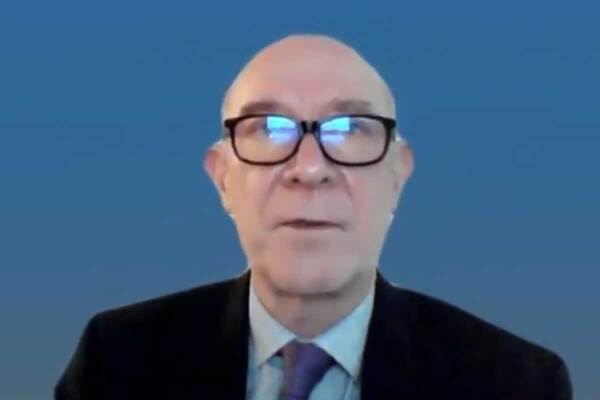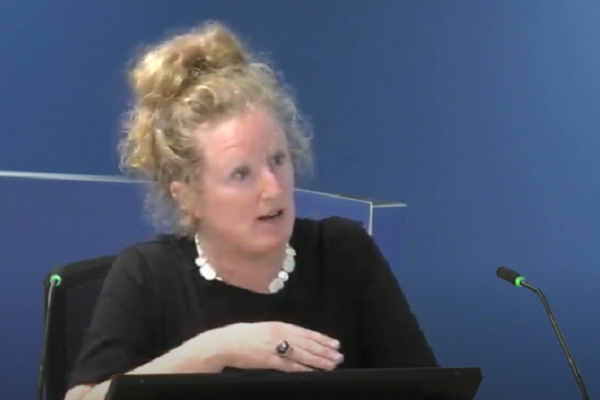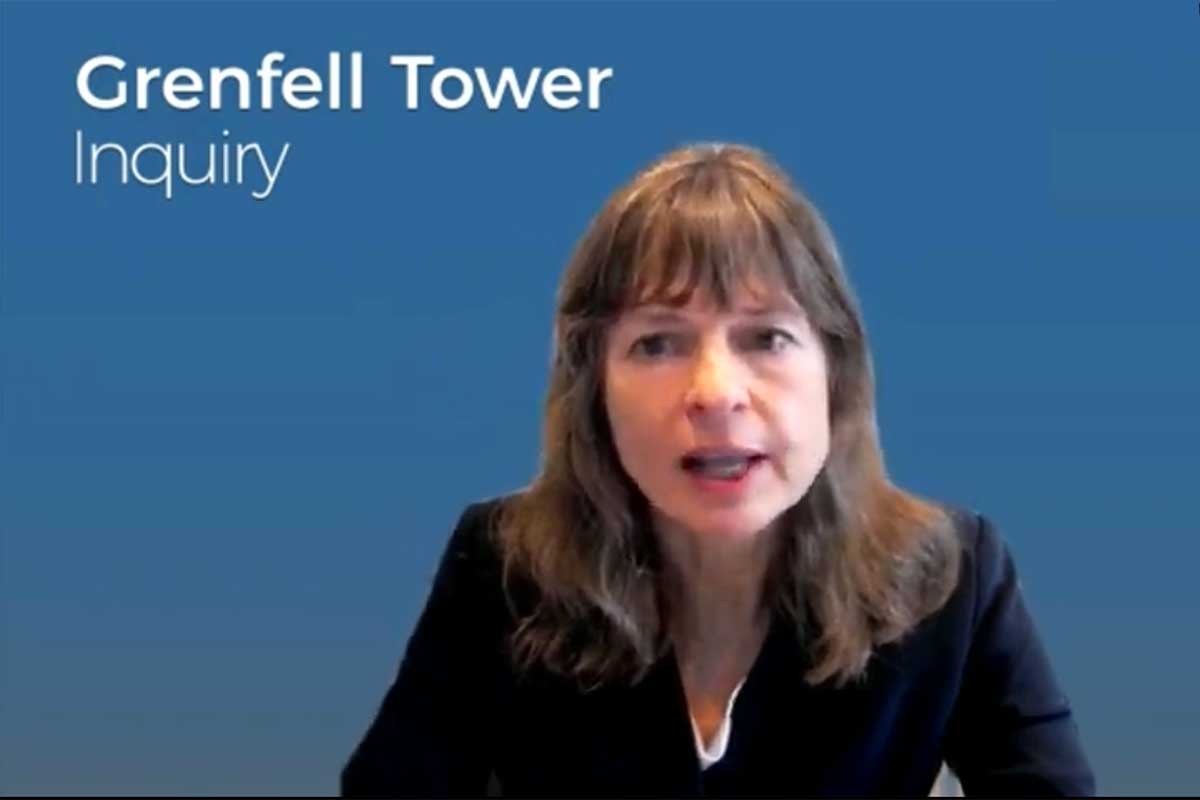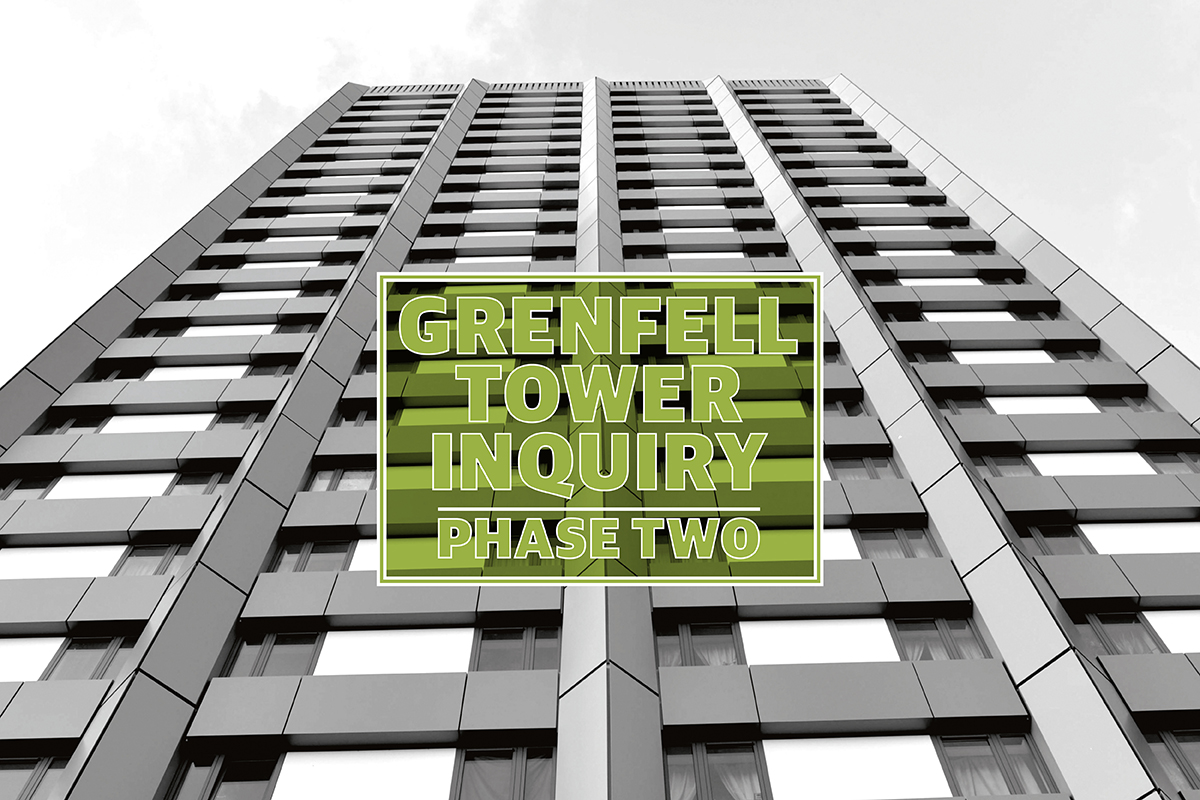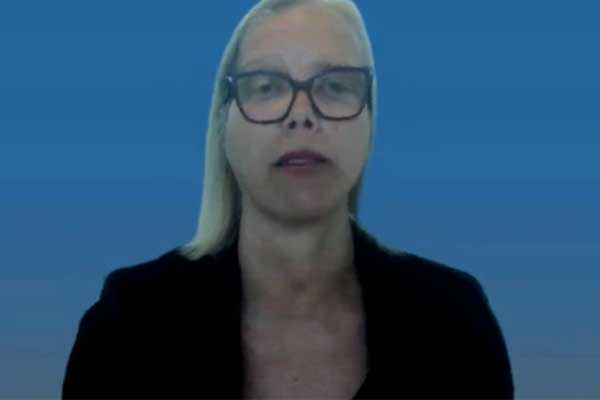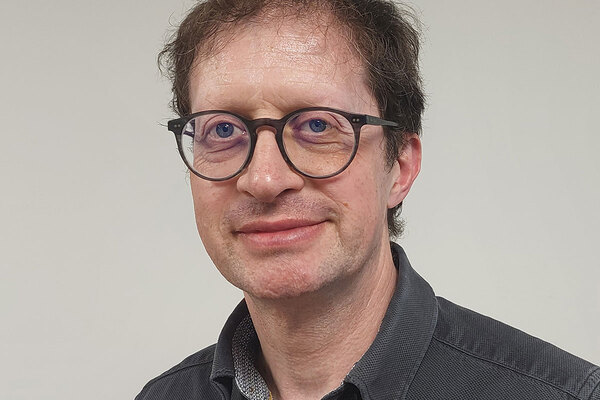You are viewing 1 of your 1 free articles
Grenfell contractor put ‘financial self-interest’ ahead of fire safety, consultancy claims
The lead contractor on Grenfell Tower’s refurbishment has been accused of putting “financial self-interest before all other considerations” and not giving fire safety “a second thought”, in evidence given by a fire safety consultancy to the inquiry into the fire.
In its closing statement to modules one and two of phase two of the Grenfell Inquiry yesterday, Exova, the fire consultancy, claimed it was “frozen out” of the refurbishment of the tower, and argued that Rydon, the lead contractor on the project, put profit ahead of safety.
The inquiry previously heard that the Kensington and Chelsea Tenant Management Organisation (KCTMO) hired Exova to produce a fire strategy for Grenfell Tower during the early design stages of the refurbishment, before the aluminium composite material (ACM) cladding was selected.
Exova has been criticised heavily for this fire strategy by lawyers acting for the bereaved, which said the refurbishment’s design would have “no adverse effect in relation to external fire spread”.
But Michael Douglas QC, speaking on behalf of Exova, told the inquiry this report included a number of “caveats”, including that this statement would be confirmed in a later issue of the report.
However, the inquiry has already learned that Rydon never entered into a contract with Exova when it took over the Grenfell project and that an updated fire strategy was never written.
Mr Douglas said yesterday the firm was not consulted about the decision to use ACM cladding, adding that this decision was motivated by “cost and nothing else”.
He said Rydon was to blame for the decision not to instruct a fire consultant on the project and said they “ignored their own lack of experience on fire matters in approaching the issue of delegation”.
“They are to blame for putting financial self-interest before all other considerations and never giving fire safety a second thought in the process,” Mr Douglas added.
Rydon previously blamed the government’s regulations for the fire at Grenfell, as well as the manufacturers of the cladding and insulation for making their products appear safe. Rydon will give its closing statement tomorrow.
Exova’s evidence was followed by a closing statement from Arconic, the company that manufactured the ACM cladding used on Grenfell Tower.
Speaking on behalf of the French company, Stephen Hockman QC argued that Arconic only manufactured the “raw” ACM panels and was not responsible for the way in which they were fabricated or the materials with which they were used.
He said the panels were used as part of a “wholly unorthodox and irregular cladding system” on Grenfell, for which “the company bore no responsibility”.
The inquiry previously heard that Arconic did not provide the British Board of Agrément (BBA), an independent certification body, with test data showing its panels received a far lower fire classification than the test their certificate was based on, despite repeated requests from the BBA for additional test results.
Mr Hockman said these “less favourable” test results would not have affected the BBA’s certificate, as they were carried out on a certain fabrication of the panel and “did not detract from the fact that the product had achieved and was capable of achieving” a higher fire rating.
He said that it was possible to use ACM in a “safe and compliant” manner, adding that Grenfell occurred due to a “unique combination” of factors, including the combination of materials, failure of compartmentation and the “undue reliance on the stay-put policy”.
“It is far too easy, but also wrong and deeply unfair to try to pin the blame on the manufacturer of a particular material, which at the time, and I stress at the time, was engaged in a lawful process of merchandising of a product, which cannot be demonstrated to be regarded at the time as necessarily inappropriate or unusual,” he said.
The inquiry also heard closing statements from Celotex and Kingspan, the two insulation manufacturers whose products were used on Grenfell Tower.
Speaking on behalf of Celotex, Craig Orr QC said the construction professionals working on the tower refurbishment have sought to “exculpate themselves by blaming others”, such as the product manufacturers, whose marketing literature, they claim, misled them.
“These arguments should be rejected. They have been devised after the event by the construction professionals to excuse their failure to have any proper regard to the compliance of the system they designed and constructed,” he said.
It has been known since 2018 that Celotex used additional fire-resisting boards in a May 2014 test of the product used on Grenfell Tower, which were not declared in the report or subsequent marketing literature.
Today, Mr Orr acknowledged that the description of the test used by Celotex was “inaccurate”, but said this had “no impact on and is completely irrelevant to the specifications, supply and use” of the insulation at Grenfell, because “it is clear beyond doubt” that no construction professional placed any reliance on the description of the system in the literature.
Celotex apologised for the “inappropriate and unacceptable conduct on the part of a number of its employees” with regards to the testing and said Celotex “has sought to learn from this experience”.
Speaking on behalf of Kingspan, Geraint Webb QC told the inquiry the company’s “shortcomings” are not “relevant to the unsafe design of the Grenfell Tower refurbishment, nor were they causative of the fire and nor were they causative to the nature and speed of the fire”.
Over the course of the inquiry, Kingspan witnesses have answered questions relating to the ways in which it tested and marketed its insulation products.
Mr Webb said these have led to accusations against Kingspan “have no basis in fact” and said none of the tests carried out by Kinsgpan on the K15 product used on parts of Grenfell Tower were “manipulated”.
Like Celotex, Kingspan said it “recognises that there were certain shortcomings in respect of some aspects of the testing of K15”, but said those “shortcomings have not resulted in anyone being misled”.
Moreover, Mr Webb argued that the ACM cladding used on Grenfell “was unsafe for use with any type of insulation” and that the “nature and speed of the spread of the fire would not have been materially different if non-combustible mineral fibre insulation had been used”.
The final closing statement of the day came from Samantha Leek QC on behalf of the Building Research Establishment (BRE), which tested the Kingspan and Celotex insulation products used on Grenfell Tower.
Ms Leek said the BRE was “deeply troubled” by the evidence of how Celotex and Kingspan used its testing reports and said it has “made changes to its own internal processes, practices and structures”.
The inquiry continues.
Sign up for our weekly Grenfell Inquiry newsletter
Each week we send out a newsletter rounding up the key news from the Grenfell Inquiry, along with the headlines from the week
Already have an account? Click here to manage your newsletters
